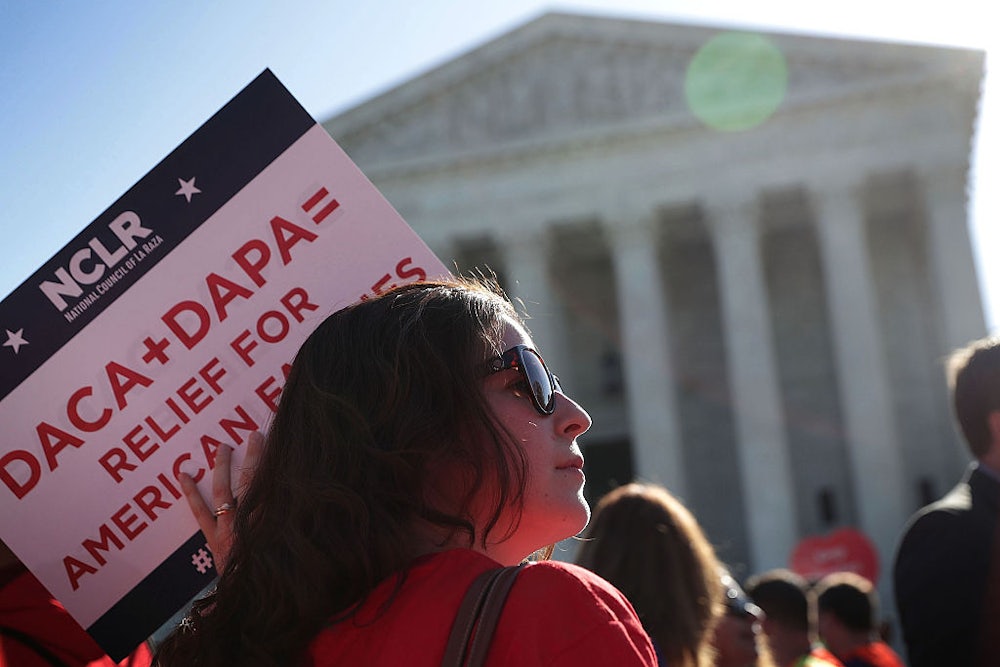Will Obama’s legacy include progress on immigration reform after all? DOJ spokesperson Melanie Newman recently announced that the department is petitioning the Supreme Court to rehear US v. Texas, the year’s most significant case on immigration relief, when the court once again has all nine Justices on the bench.
While SCOTUS rehearings are “exceedingly rare,” a fact which the DOJ itself admits, the circumstances of the Supreme Court vacancy have also been exceptional; as of today, it has been a record 125 days since Merrick Garland was nominated for the Court.
In US v. Texas, the Supreme Court’s split decision was announced in a spare nine-word statement: “The judgement is affirmed by an equally divided court,” upholding the lower court’s decision against Obama’s order. The case heard arguments on the constitutionality of Obama’s 2014 DAPA program, or Deferred Action for Parents of Americans, which offered deportation relief and work permits on a case-by-case basis to as many as 5 million undocumented immigrants who are parents of American citizens and legal residents. Outside the court, many who had been waiting on a decision for two years wept at the outcome.
Even if a rehearing were granted, the decision would ultimately rest on the appointment made by the next President of the United States. At the least, it’s a matter that deserves more consideration than the previous ruling’s stalemate.
